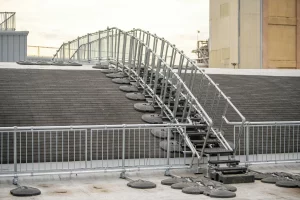Image: https://unsplash.com/photos/aerial-photography-of-blue-speedboat-near-dock-4ajRZAs-FoM
Embarking on a waterfront project, whether it’s a personal residential slip or a large-scale commercial marina, is an exciting venture. The centerpiece of this project is, of course, your dock. Specifically, if your location experiences fluctuating water levels, a floating dock is often the most practical and efficient choice. But here’s the most critical decision you’ll face: selecting the right floating dock builders. This choice is not just about cost; it’s about the safety, longevity, and functionality of your entire investment. Cutting corners here can lead to frustrating repairs and a dock that fails to meet your needs.
A quality dock builder brings more than just construction skills to the table. They offer expertise in local regulations, site-specific engineering challenges, and material selection that only years in the industry can provide. They transform your idea into a reliable structure that can withstand the elements and serve its purpose for decades.
Key Criteria for Vetting Potential Builders
To make an informed decision, you need a systematic approach to evaluating prospective floating dock builders. Consider the following essential criteria:
1. Experience and Portfolio
Look Beyond Years in Business: A builder may have been around for a long time, but have they built floating docks specifically? Floating dock systems involve complex anchoring and flotation engineering that differs significantly from fixed structures.
Review Their Portfolio: Ask to see examples of completed projects. Look for projects similar in size, scope, and environment to yours. Did they handle a challenging tidal area or a sheltered lake? Seeing their work firsthand (if possible) or reviewing high-quality photos and testimonials is invaluable.
2. Licensing, Insurance, and Warranties
Non-Negotiable Credentials: Confirm that the builder is fully licensed and insured. General liability insurance and workman’s compensation protect you from liability in case of accidents on your property.
Understand the Warranty: What kind of warranty do they offer on their workmanship and the materials used (e.g., floats, decking, hardware)? A reputable builder will stand by their product for several years.
3. Material Expertise and Customization
Material Knowledge: A great builder will guide you through the pros and cons of different decking materials (wood, composite, concrete) and floatation options (encapsulated foam, roto-molded polyethylene). They should be able to explain which materials are best suited for your local climate and water conditions.
Custom Design: Can they accommodate unique requirements? You might need specialized slips, unique access ramps, or specific utility hookups. The best floating dock builders offer custom design services to ensure the final product perfectly matches your vision and functional needs.
4. Reputation and Customer Service
Seek Out Reviews: Look for reviews and testimonials from past clients on various platforms. Pay attention to comments regarding their communication, adherence to timelines, and responsiveness to post-construction issues.
The Initial Consultation: How thorough is their initial assessment? A good builder will visit your site, ask detailed questions about your use case (e.g., boat size, expected traffic), and provide a detailed, transparent quote that breaks down labor and material costs. Be wary of overly low bids, which often signal low-quality materials or unexpected add-on costs later.
Your Floating Dock Investment
Choosing the right partner for your project is essentially an investment in peace of mind. The right floating dock builders ensure that your dock is not only beautiful but also engineered to last. Take your time, do your research, and prioritize quality and expertise over price. This careful selection process will guarantee you a safe, stable, and enjoyable waterfront experience for years to come.
Frequently Asked Questions
1. Why is insurance so important?
A: The builder’s insurance protects you from financial liability if one of their workers is injured on your property or if they cause damage to your existing property during the construction process.
2. How long should a quality floating dock last?
A: With proper maintenance and high-quality materials, a well-built floating dock system from expert builders can easily last 25 to 35 years or more.
3. Should I hire a local or out-of-town builder?
A: Local floating dock builders often have a distinct advantage as they are more familiar with local permitting processes, zoning laws, and specific regional weather/water conditions that affect dock design.



